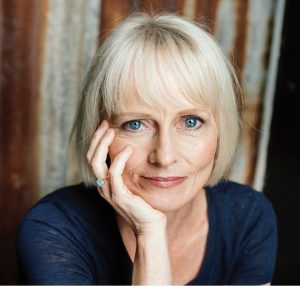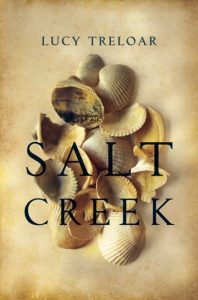Aiming For Balance
 Like so many writers, I don’t rely solely on writing to make my living. My income comes from a range of sources: editing, journalism, creative writing teaching and even a little mentoring. This year there’s been the additional juggle of promotional work related to my book, Salt Creek. The common factor is words: love of words, the use of words and, I hope, teaching others what I know. They are at the centre of everything I do – apart from family and my garden! Theoretically, all these things should be mutually supporting, but somehow this is not so.
Like so many writers, I don’t rely solely on writing to make my living. My income comes from a range of sources: editing, journalism, creative writing teaching and even a little mentoring. This year there’s been the additional juggle of promotional work related to my book, Salt Creek. The common factor is words: love of words, the use of words and, I hope, teaching others what I know. They are at the centre of everything I do – apart from family and my garden! Theoretically, all these things should be mutually supporting, but somehow this is not so.
The problem is that I find writing fiction quite difficult, and for years the only way I’ve been able to achieve anything is to keep my fiction writing separate from everything else. I have to or I’d never write at all. Take the effect of editing, for instance. Even though writing will always involve editing at some stage – both at the writer’s own hand and the publisher’s – it’s crucial for me, especially early in the creation phase, when writing a first draft, to keep my inner editing voice switched off.
It can be a paralysing presence in my mind, as if there’s someone sitting at my shoulder saying, ‘No, don’t do that; oh, that’s terrible. Where are you going with this? That character would never do/say/think that’, and so on. I manage this by keeping separate and completely dissimilar workspaces: a very dull, internet-free and plainly furnished creative writing studio several miles from home and a fairly cluttered home office for my editing business. I associate the studio with writing fiction and nothing else so that now, just arriving there helps to put me in a creative frame of mind.
I write there most mornings, setting myself a minimum word target of one thousand words. By around lunchtime writing fatigue sets in. I’m no longer thinking at my best, and it takes longer and longer to produce a sentence or an idea that I’m happy with. If I’ve made my word count, that’s it. I pack up and head home. The journey followed by lunch and walking my dogs creates a useful transition to an afternoon of editing or working on some journalism, or doing research towards my fiction in progress. It’s a line that divides my day, and keeps the creative world in a safe compartment that I can enter each morning. It has nothing to do with any other part of my life, and I’ve slowly learned that this is the only way I can get any writing done. It doesn’t speak well for my focus, but I just have to live with that knowledge and do the best that I can.
Editing (other people’s material at least) is easy compared to creative writing – unless there’s a tight deadline! But some types of editing are harder than others. In terms of fiction editing, most of the material I see is folk tales or children’s picture books translated from Khmer (the language of Cambodia) into English. The challenge of that engages my creative side, but is much slower than the other editing I do, and can be wearing. I avoid it as much as possible because of its depleting effect on my own writing.
The non-fiction editing is faster, easier, and more interesting to edit than the fiction. It could almost be called recuperation from a morning of writing, using up nothing more than my time, while giving me a quiet sense of measurable achievement. Book promotion takes time and engagement. Traveling to festivals or to give talks can be fun as well as fascinating, but can be a distraction too. I know writers who manage combining promotion with writing. I’m not there yet, but hope to be some day.
 I’ve found teaching to be more problematic. The time I take with creative writing students and the preparation for each class make up only a fraction of my working week, usually a day, yet somehow it has a looming presence. That’s not to say that I don’t enjoy it. I so often do. It’s wonderful to see writing students engaging with their work and learning skills. But the preparation for each class, thinking about the best way to approach problems, thinking of useful examples, or how to approach teaching a complex technical issue in writing, is in my mind so much of the time. Teaching matters to me. The approach to it matters. There has to be some kind of emotional engagement, and part of me is troubled by anything that takes focus from the writing.
I’ve found teaching to be more problematic. The time I take with creative writing students and the preparation for each class make up only a fraction of my working week, usually a day, yet somehow it has a looming presence. That’s not to say that I don’t enjoy it. I so often do. It’s wonderful to see writing students engaging with their work and learning skills. But the preparation for each class, thinking about the best way to approach problems, thinking of useful examples, or how to approach teaching a complex technical issue in writing, is in my mind so much of the time. Teaching matters to me. The approach to it matters. There has to be some kind of emotional engagement, and part of me is troubled by anything that takes focus from the writing.
I’ll be working intensively on my second novel next year, including making a couple of trips to the book’s setting, and have reluctantly decided that although I can keep on editing, as I did while writing Salt Creek, I’ll have to give up teaching next year, despite my understanding workplace and the talented students I teach.
My aim is to create the emotional space I need to explore the world and characters of my fiction. Like so many writers I’ve been grateful for the flexibility that writing gives me in my working life; it’s only recently, trying to working on my next book, that I’ve come to see that there are limits. There are no certainties, just hard decisions, and putting the writing first. I’ll just have to hope that my workplace will welcome me back.
—
Lucy Treloar was born in Malaysia and educated in England, Sweden and Melbourne. A graduate of the University of Melbourne, Lucy is a writer and editor and works both in Australia and Cambodia, where she lived for a number of years. Lucy’s critically acclaimed debut novel, Salt Creek (Pan Macmillan), is the winner of the ABIA Matt Richell Award, the Indie Award for Best Debut Fiction, and the Dobbie Award, and was shortlisted for the Miles Franklin Literary Award and the UK’s Walter Scott Prize, among others. Lucy’s short stories and non-fiction have appeared in numerous publications. Salt Creek is scheduled for publication in the USA and England in 2017.
Find out more about Lucy on her Website http://lucytreloar.com/
Category: About Women Writers, Women, Books, Contemporary Women Writers, How To and Tips

























